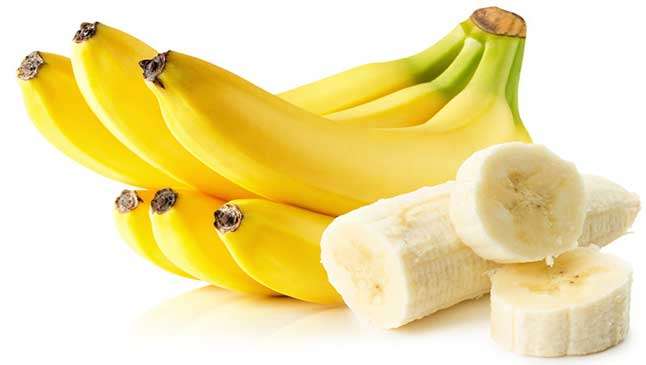Understanding Junk Food Addiction
Junk food, we all know it. It’s that quick fix, that tempting snack. But what exactly is it? It’s the sugary, salty, and oh-so-appealing grub. And believe it or not, that bag of chips or that donut can reel you in like an addiction. It’s everywhere—supermarkets, commercials, even school cafeterias. So, is it just food, or is there something deeper, something addicting about it? Let’s delve in.
The key to understanding junk food is not just its taste or convenience, but also how it quietly enters our lives and minds, becoming more than just a special treat. Let’s explore what makes it more than just another snack.
Defining Junk Food
What sets junk food apart from the rest? It’s not just about taste; it’s a whole vibe. Think high on sugar, fat, salt—just the stuff that hits the spot. Burgers, fries, candies—they’re the poster kids of junk food. They’re not picky; you can find them anywhere, from the corner store to fast-food joints. And they don’t just knock on your door; they flaunt themselves on billboards, ads, and online. They’re the kind of friend who’s always up for a hangout. It’s very easy to access them. But what’s more to them than just being tasty, fast, and easy? Let’s have a closer look at these traits that make them stand out.
The Science Behind Food Addiction
Food isn’t just about hunger; it’s a mind game. The neurology of food addiction—there’s a science to it. Some foods, the really enticing ones, they’re like magicians—they cast a spell on our brains. They hit those reward pathways, making our brains go, “Yes, please, more!” Surprisingly, the way the brain responds to these foods is quite similar to how it reacts to substances like drugs. It’s like they’re playing the same tune, just different instruments. But what does this mean for our relationship with food? Let’s unravel this mind-bending science behind why that bag of chips or that sugary snack can feel so irresistible.
Factors Contributing to Junk Food Addiction
Why do we keep coming back for more junk food? It’s not just hunger—it’s a mix of things. Sometimes it’s our emotions driving us to the fridge or the pantry. Stress is a big player too. The ads and colourful packages are tempting. It’s like they’re in cahoots with societal influences, nudging us to give in. But wait, it’s not just our minds at play; our genes might have a say in this too. There’s a lot more to that craving for chips or cookies than meets the eye. Let’s unpack the factors that make junk food so irresistible and why it feels like more than just a simple snack.
Effects of Junk Food Addiction
Ever wondered what a constant nibble on junk food does? It’s not just a harmless bite. It can pack a punch on our well-being. Obesity and heart issues—those are just the Obesity and heart issues—those are just the beginning. But it’s not just our bodies that take a hit; our minds suffer too. It’s like a rollercoaster for our mood and mental well-being. Plus, it’s not just a solo journey; it affects how we roll in our social circles and might even push us to change our lifestyle. So, that bag of chips or that sugary treat—it’s more than just a snack. Let’s dive into the impact it has on our health, mind, and daily lives.
Breaking the Junk Food Addiction Cycle

Recognizing Signs of Junk Food Addiction
Is that bag of chips more than just a snack? Watch out for the signs; they speak volumes. It’s all about our behavior—how often we find ourselves drawn to the fridge or the snack drawer. But worry not, there are ways to check in on yourself. Those little self-assessment tricks can be eye-opening. Let’s have a closer look at how to spot if that occasional craving has turned into something more.
Strategies for Overcoming Junk Food Addiction
Kicking that habit of junk food is within reach. There’s a world beyond the bag of chips or that soda—healthy alternatives and swaps can fill that gap. And it’s not just about what we eat, it’s about how we do it. Focus on your eating, save each bite, and be at the moment. But if it feels like a tough nut to crack, don’t hesitate to reach out. Professional help and support groups can be game-changers. It’s a journey, but there are paths to break free from the grip of those tempting treats. Let’s explore how these strategies can turn the tide against that addiction to junk food.
Understanding food as nourishment rather than comfort
Food—it’s more than just filling a void. It’s nourishment, fuel for our bodies. Shifting our perspective from seeking comfort to seeking sustenance changes the game. It’s about building a positive relationship with what’s on our plate. Small changes pave the way for a long-term shift. And it’s not a quick fix; it’s a journey, leading to lifestyle changes and habits that stick. Exploring how changing our approach to food can reshape our relationship with what we eat, making it a nourishing and beneficial source.
Importance of nutritional education
Knowing what’s on our plate is crucial. Nutritional education is the key—it’s not just about eating, it’s about understanding what we eat. Sometimes, we’re led astray by what we think is healthy. Addressing misconceptions about what’s good for us is eye-opening. It’s not just about steering clear of certain foods; it’s about understanding why. But it doesn’t stop there; spreading the word about the consequences of being addicted to junk food is crucial. Education is important for making healthier choices and overcoming junk food addiction.
Conclusion: Embracing a Healthier Lifestyle
Let’s wrap it up—what did we learn? It’s more than just food. We’ve uncovered the pull of junk food, its impact on our well-being. Now, here’s the nudge: it’s time for a change. Shifting to healthier eating habits isn’t just a fad; it’s a lifestyle. Breaking free from junk food addiction is not only about what we eat, but also about taking control of our health and happiness. It’s a journey worth taking, step by step, towards a healthier, brighter tomorrow.


